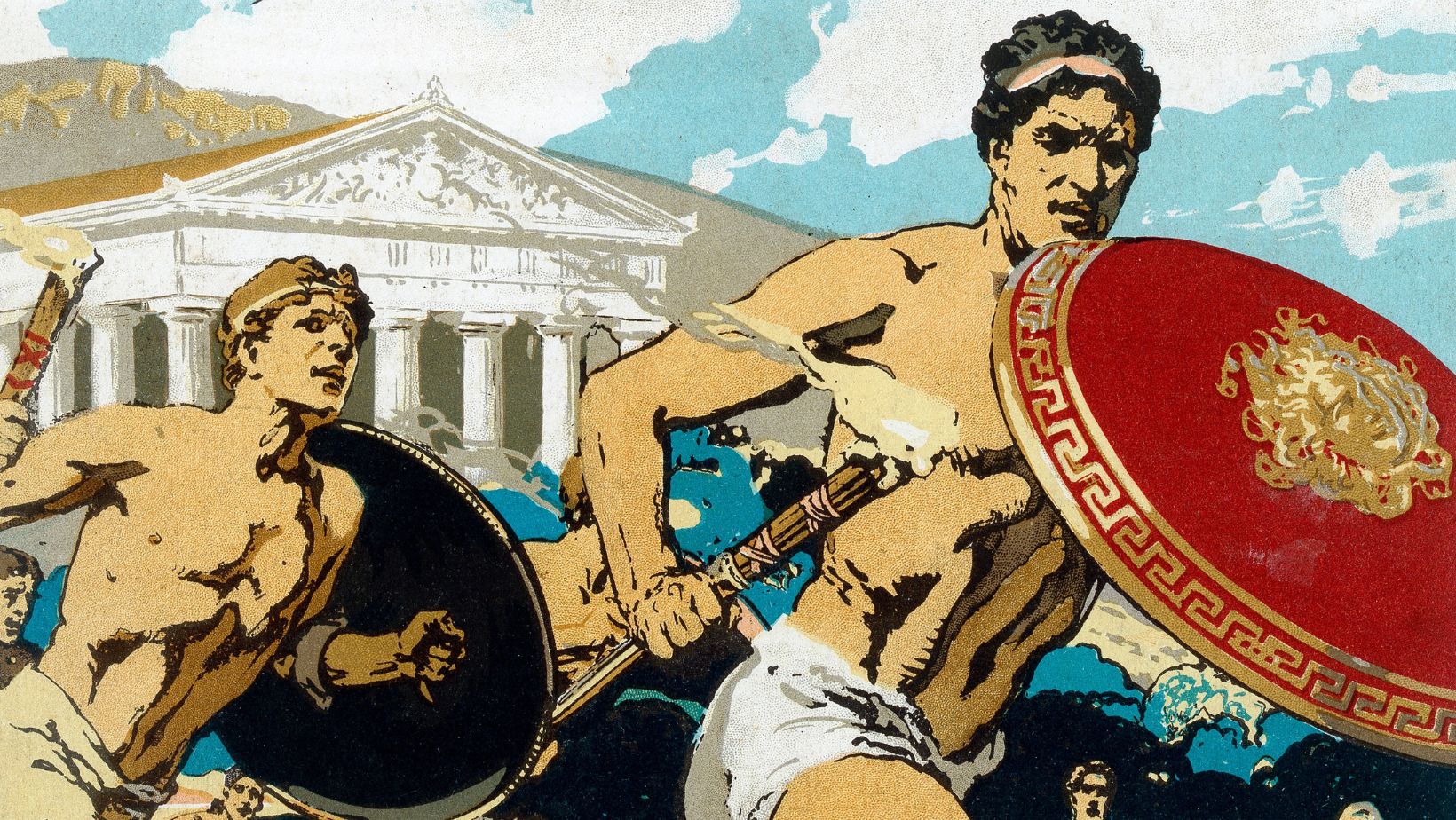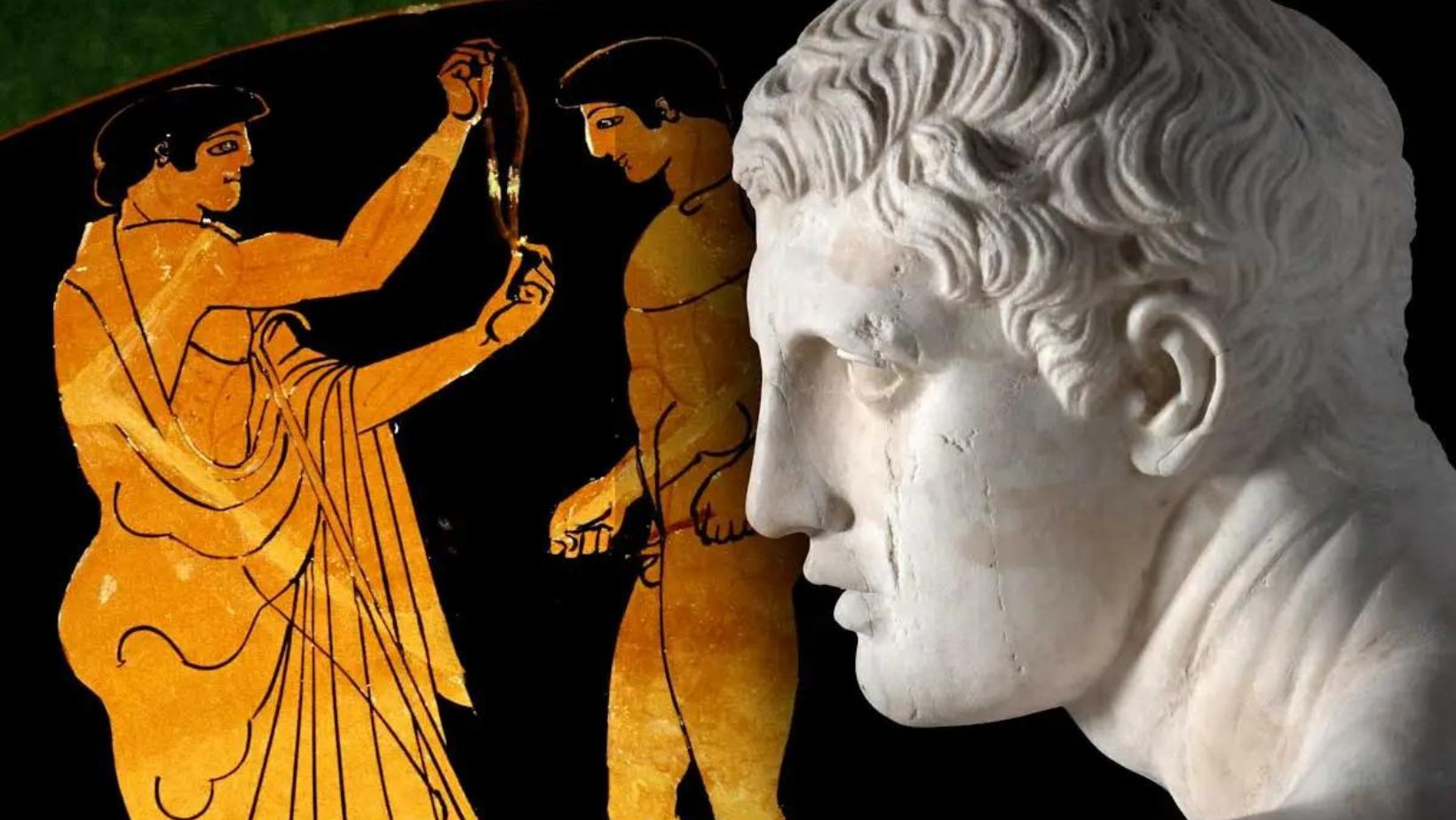Ever wonder about the heroes who stood atop podiums long before modern athletes? The ancient Olympic Games, a blend of athletic might and cultural prestige, crowned numerous champions whose legacies continue to inspire. Some of these champs pulled off incredible stuff without any of the fancy gadgets or training tricks we have today. From sprinting battles to the thrill of chariot races, victors in the Ancient Olympic Games Winners etched their legacy with sheer perseverance, talent, and a whole lot of elbow grease.
Table of Contents:
- The Ancient Olympic Games and Its Champions
- Events and Training in the Ancient Olympics
- Celebrating the Victors: Prizes and Glory in Ancient Olympia
- Women and the Ancient Olympic Games
- The Panhellenic Games and the Ancient Olympics
- The Decline and End of the Ancient Olympic Games
- Conclusion
The Ancient Olympic Games and Its Champions: Ancient Olympic Games Winners

The ancient Olympic Games were a big deal. They ran for over a thousand years and laid the groundwork for today’s modern Olympics.
Origins and History
These games, held every 4 years in honor of Zeus, have a long and rich history. The first recorded champion? Koroibos of Elis, who won the stadion race in 776 BC.
But it wasn’t just about Olympia. By the 6th century BC, other Panhellenic games cropped up in Delphi, Nemea, and Isthmia, drawing competitors from all over the Greek world.
Events and Competition: Ancient Olympic Games Winners
The events were a big draw, with something for everyone. You had combat sports, track and field, and even equestrian events. The combat sports were a real crowd-pleaser – no holds barred.
But it wasn’t just about brawn. The pentathlon tested athletic skills with running, jumping, spear throwing, discus, and wrestling. Talk about a well-rounded athlete.
Prizes and Honors
So what did these champions get for their trouble? An olive wreath crown and major bragging rights. The glory and fame they brought to their hometowns were better than any cash prize.
Events and Training in the Ancient Olympics: Ancient Olympic Games Winners
The ancient Olympics weren’t just a walk in the park. These athletes trained hard and competed even harder across a range of events.
Track and Field Events
The track events were the heart of the games. You had the stadion race, a roughly 200-meter sprint, and the diaulos, which was twice that length.
For the endurance junkies, there was the Dolichos, a race of 18-24 laps. And let’s not forget the hoplitodromos, where competitors ran weighed down with armor and shields. Talk about a challenge.
Then there were the combat sports, not for the faint of heart. Boxing and wrestling were crowd favorites, along with the pankration, a no-holds-barred mix of the two. These were intense, sometimes brutal matches that tested the limits of human endurance.
Equestrian Competitions: Ancient Olympic Games Winners
Horses also had their day in the sun with chariot races and riding events. The four-horse chariot race was a spectacle and a major crowd draw.
Athlete Preparation and Training
All of this took serious training. Athletes would spend months, even years, honing their skills. Many had private coaches and followed strict diets to stay in top form. The Olympics were the ultimate test of their abilities for these dedicated competitors.
Celebrating the Victors: Prizes and Glory in Ancient Olympia
Winning at the ancient Olympics was a major accomplishment. The prizes and honors heaped upon victors were unmatched in the Greek world.
The immediate prize was an olive wreath placed upon the winner’s head. This wreath, made from wild olive leaves, was a sacred symbol of glory and tied the games to Zeus himself.
But that was just the beginning. Victors were welcomed home as heroes, showered with gifts, and forever immortalized in statues and victory odes. Some even received lifetime pensions and free meals.
The glory didn’t end there. Many victors had the honor of engraving their achievements on stone tablets for all to see. These records, some of which survive today, ensured their legacy would endure through the ages.
Women and the Ancient Olympic Games: Ancient Olympic Games Winners
The ancient Olympics were largely a men ‘s-only affair. Married women were not only barred from competing but couldn’t even attend as spectators. The penalty for defying this rule? Death.
But there was one exception – the Heraean Games. Held in honor of Zeus’s wife, Hera, these games gave young, unmarried women a chance to showcase their athletic talents.
While not as grand as the men’s competition, the Heraean Games were still a major event. Girls competed in footraces, with winners earning olive wreaths and a portion of a cow sacrificed to Hera. Not too shabby.
The Panhellenic Games and the Ancient Olympics

The ancient Olympics were the granddaddy of them all, but they weren’t the only game in town. The Greeks loved their athletic festivals, and several other Panhellenic games rose to prominence.
Chief among these were the Pythian Games at Delphi, the Isthmian Games near Corinth, and the Nemean Games. These competitions, held every two or four years, featured many of the same events as the Olympics.
Together, these Panhellenic games formed a circuit, with top athletes often competing in all of them. Victories at multiple games were a mark of true athletic greatness.
But the games were about more than just sports. Major religious and cultural events also brought the Greek world together. Sacred truces were declared to allow safe passage for athletes and spectators, a powerful symbol of unity in a fractured region.
The Decline and End of the Ancient Olympic Games: Ancient Olympic Games Winners
All good things must end, and the ancient Olympics were no exception. After a remarkable run of nearly 12 centuries, the games fell victim to a changing world.
As the Roman Empire rose to power, Greek influence waned. While enthusiastic adopters of Greek culture, the Romans had their own athletic traditions and spectacles.
The death toll came in 393 AD, when the Christian Emperor Theodosius I banned all pagan festivals, including the Olympics. A few later attempts to revive the games were short-lived.
The ancient Olympics were over, but their legacy endured. The ideals of athletic excellence, fair play, and unity that defined the games would inspire the modern Olympic movement, which carries the torch today.
Key Takeaway: Ancient Olympic Games Winners
The ancient Olympic Games were more than just sports; they were a blend of athleticism, culture, and religion that united the Greek world. Winners gained immense glory, which influenced their lives and left a legacy that echoes in today’s Olympics.
Conclusion: Ancient Olympic Games Winners
The tales of Ancient Olympic Games winners are not just recorded from dusty scrolls; they’re reminders that excellence has always been part of human nature. Their triumphs shout from the past, cheering us on as we chase our own peaks of excellence. These athletes from antiquity show us that greatness isn’t new—it’s as old as competition itself.

